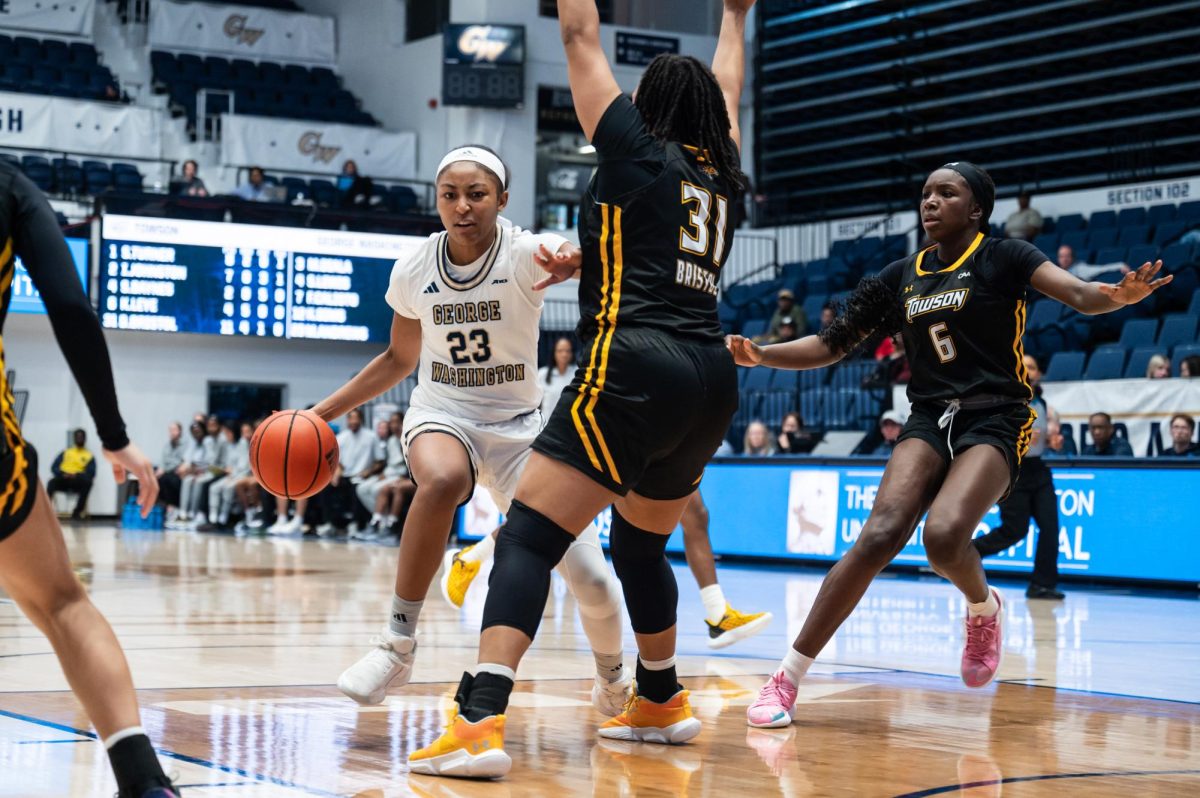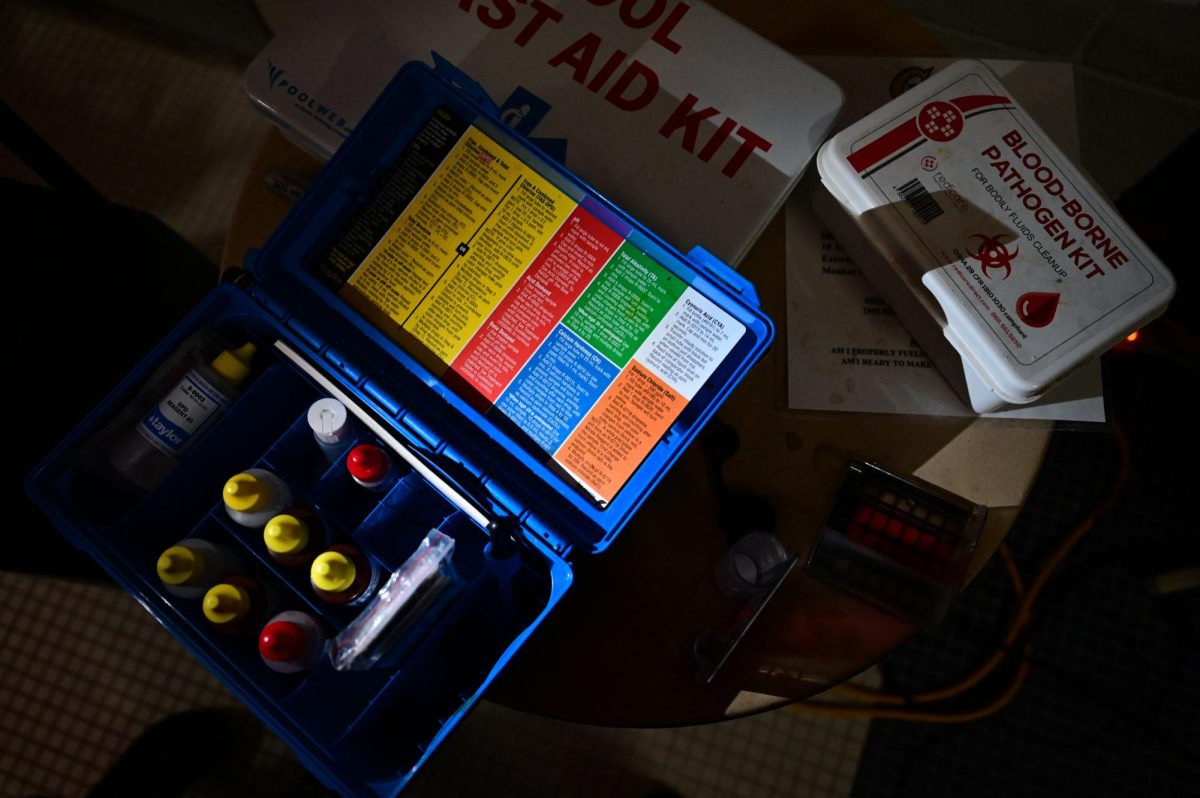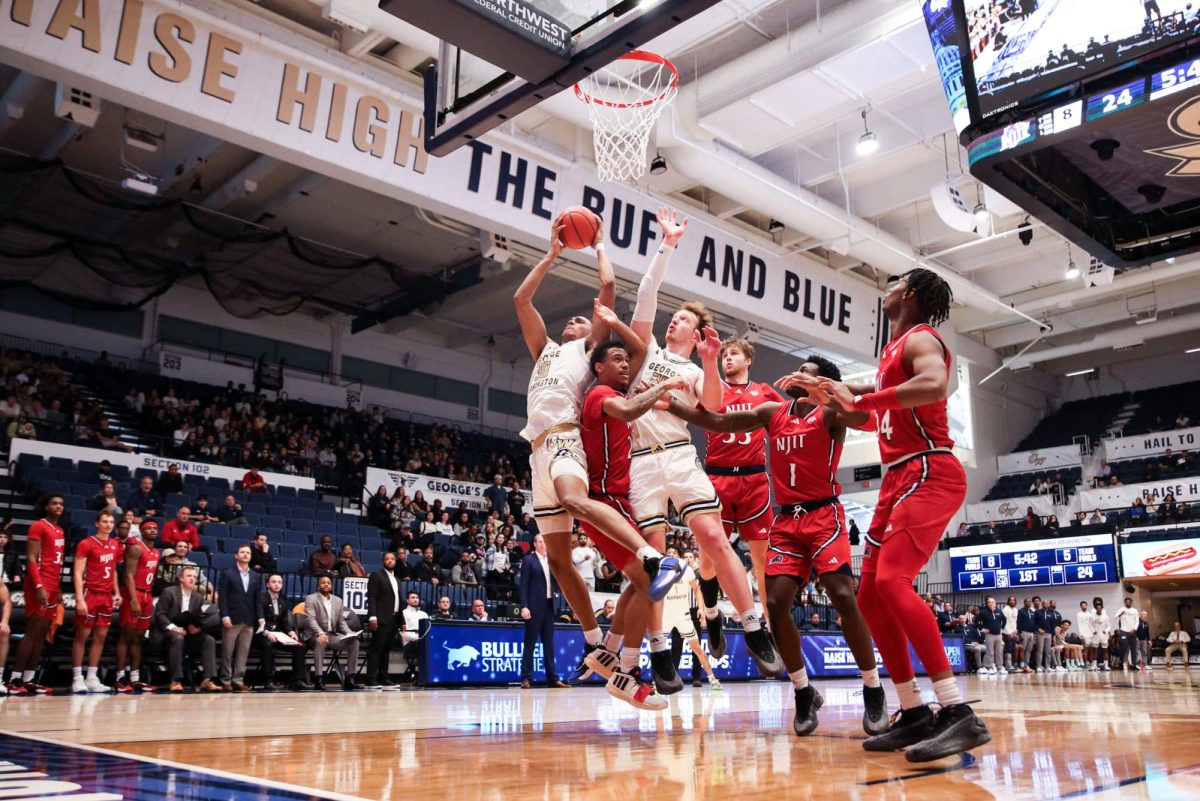
After a year of training, former GW varsity swimmer Bill Shipp, Class of 1982, can add swimming the English Channel to his list of accomplishments, which already included surviving cancer.
Shipp completed the historic swim on Sept. 19 from England to France – 20.6 miles across the Strait of Dover at the shortest point, but typically requiring a much longer swim path because of the push of the tide. He finished with an unofficial time of 12 hours 22 minutes and 33 seconds after overcoming the cold, salt water and jellyfish.
“I think every open-water swimmer dreams of the Channel,” said Shipp, who is in his mid-50s. “It may not be the most difficult swim, but it is steeped in tradition and history and is certainly the most well known.”
The business and real estate lawyer, who received a bachelor’s degree in urban affairs from GW and then a law degree from the GW Law School in 1985, made it across the Channel just four years after he was diagnosed with prostate cancer. Although his struggle and win over the disease motivated him throughout the swim, he does not believe surviving the illness gave him any advantage.
“Certainly dealing with cancer has been a source of personal motivation for me, but I don’t think I am different than anyone else,” Shipp said. “Everyone has overcome obstacles in their life, and that journey can be a source of strength when you are attempting a big challenge like the Channel.”
The swim typically requires years of preparation. Support boats accompany the swimmers, supplying food via feeding poles or pulling them out of the water if necessary. Swimmers face hypothermia and traffic in the world’s busiest shipping lane, which is why the Channel Swimming Association strongly encourages them to purchase sport and life insurance.
Shipp said he swam the Channel hoping to inspire donations from friends, family and interested community members to the Waves of Hope Fund, a charity he founded to support the arts, underserved children, development organizations and sustainability.
When he’s in the water, Shipp said he thinks about encouraging words from friends and family who have overcome illness, and he invites people to submit their stories to him on the Waves of Hope website.
At GW, Shipp was a middle-distance swimmer, though his former coach Carl Cox, who now owns a photography studio with his wife in Rockville, Md., encouraged the captain to try longer swims. Cox said he saw potential, but Shipp could not set records as easily as he did with the middle distances.
Cox said he was surprised when he heard that Shipp had worked his way up to swimming the Channel, but he was proud of his former charge. “He has always been a winner,” Cox said.
Shipp previously held, or was a part of, seven GW records: the 100 free, 200 free, 500 free, 400 free relay, 800 free relay, 200 IM and 400 medley relay. Shipp kept a GW banner in the cargo of his guide boat during the swim.
After college, Shipp stepped out of the pool until his 40s, when he began swimming competitively in masters swimming. A few years later, he stepped out of the pool again, but that time he traded it for the open water.

The Mitchellville, Md. resident began his open-water career five years ago, starting with shorter distances and gradually adding miles to tackle challenges like the 15-mile swim across the Sound from Long Island, N.Y. to Bridgeport, Conn. and the 25-mile “In Search of Memphré” swim from Newport, Vt. to Magog, Quebec in Canada.
Shipp said he enjoys marathon swims because they are “more about a sense of accomplishment than setting speed records.”
He prepared in the days before his swim across the Channel with 1- to 1.5-mile short swims in the harbor to get used to the water temperature, and he also napped every day to rest up. Fahrenheit temperatures for the Channel in September are typically in the low 60s.
The waters of the English Channel are notorious for harsh weather conditions and dangerous obstacles, like sandbanks, shoals, sharks and boats carrying dangerous cargo. Shipp said he was fortunate with the conditions: Because of high winds, boats did not go out the day before his swim or in the days after. On the day of his swim, initially choppy seas flattened out toward the end.
“The biggest obstacle was the fog, which sometimes reduced visibility to less than 15 meters,” Shipp said. “I never saw another boat or ship, although I heard fog horns, and I never saw land until I was within a mile of France.”
“There were also jellyfish, but I only got stung once,” Shipp added.
Shipp went to Paris after the swim. He said he has not yet picked his next challenge, saying he told himself he would not plan any other swims until he made it across the Channel.
“I didn’t want to lose focus,” Shipp said. “So now I will have to look forward.”






